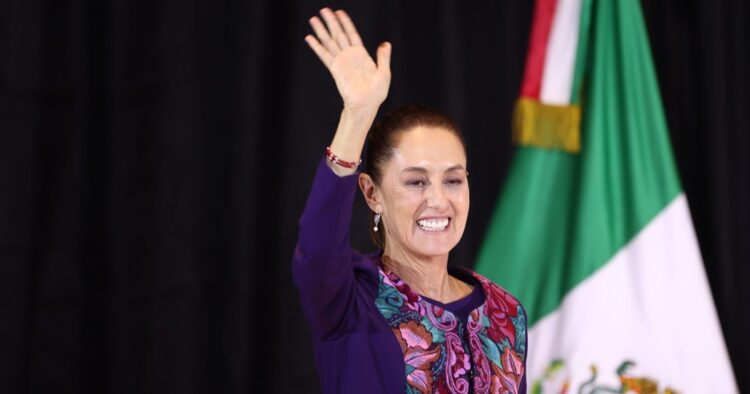Claudia Sheinbaum was elected Mexico’s first woman president on Sunday, winning by a large margin. This is a historic moment for a nation facing serious issues with crime and violence against women.
In Mexico City’s main square, supporters celebrated Sheinbaum’s victory by singing and dancing to mariachi music. Sheinbaum, who was the ruling party’s candidate, thanked the millions of Mexicans who voted for her in her victory speech. “I won’t fail you,” she promised the cheering crowd.
Sheinbaum, who is 61 years old and a former mayor of Mexico City, also thanked her main opponent, Xochitl Galvez, for conceding defeat. Preliminary results from the National Electoral Institute showed that Sheinbaum won about 58-60 percent of the votes.
She was more than 30 percentage points ahead of Galvez and about 50 percentage points ahead of the only male candidate, Jorge Alvarez Maynez.
Despite sporadic violence in areas controlled by drug cartels, many voters went to the polls. Thousands of troops were deployed to protect voters during the election, which had seen over two dozen local politicians murdered during the campaign.
Many Mexican women were excited about the possibility of having a woman president in a country where around 10 women or girls are murdered every day. Clemencia Hernandez, a 55-year-old cleaner, said a female president would be a significant change for Mexico and hoped Sheinbaum would do more for women.
Daniela Perez, a 30-year-old logistics manager, also saw Sheinbaum’s election as historic but hoped for more improvements in women’s rights and efforts to address femicides.
Nearly 100 million people were registered to vote in Mexico, a country with 129 million residents. Sheinbaum’s popularity is partly due to her close association with outgoing President Andres Manuel Lopez Obrador, a leftist mentor who has a high approval rating. Lopez Obrador congratulated Sheinbaum, noting that she might have received the most votes in the country’s history.
Interestingly, after voting, Sheinbaum revealed that she did not vote for herself. Instead, she voted for Ifigenia Martinez, a 93-year-old veteran leftist, to honor her struggle.
Mexico’s politics are often intertwined with crime and corruption, and drug cartels sometimes use extreme measures to support their preferred candidates. Hours before the polls opened, a local candidate was murdered in a violent state. In Puebla, two people died during attacks on polling stations, and voting was suspended in two municipalities in Chiapas due to violence.
Sheinbaum has pledged to continue the “hugs not bullets” strategy of addressing crime by targeting its roots, a policy started by the outgoing president. Her opponent, Galvez, had promised a tougher stance on cartel-related violence.
Since the government began using the army to fight drug trafficking in 2006, over 450,000 people have been murdered, and tens of thousands have gone missing. The new president will also need to manage relations with the United States, particularly regarding drug smuggling and migration.
In addition to choosing a new president, Mexicans also voted for members of Congress, several state governors, and many local officials, totaling more than 20,000 positions.

















Comments